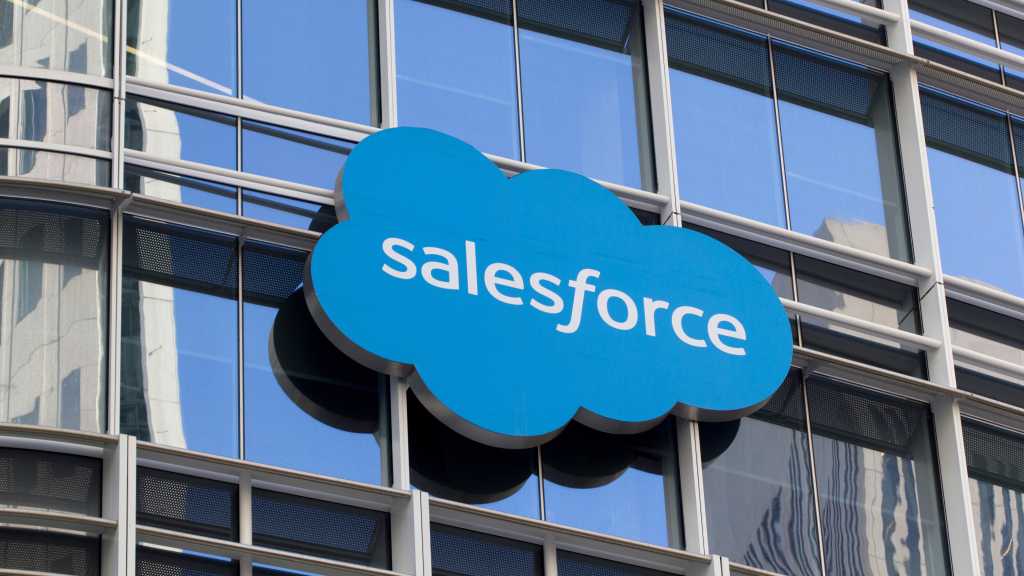The Chinese tech giant runs large platforms like Taobao and Tmall, serving hundreds of millions of users every day while introducing new methods to online shopping.
The company recently announced a significant milestone : achieving financial break-even in its retail operations, a success story directly tied to strategic investments in artificial intelligence (AI). This achievement marks a turning point for Alibaba's financial stability, demonstrating that AI investments can deliver tangible financial returns in the retail sector.
This article explores how AI technology has become the driving force behind Alibaba's financial success. You'll discover the specific AI applications transforming retail operations, from personalized recommendations to dynamic pricing models. We'll examine the concrete benefits these technologies deliver, compare Alibaba's approach with global competitors like Walmart and Target, and look ahead to what AI-driven retail innovation means for the e-commerce landscape.
Alibaba's Strategic Investments in AI for Retail
Alibaba committed CNY 380 billion ($53 billion) over three years to transform its retail operations through artificial intelligence and cloud computing infrastructure. This massive capital allocation represents one of the most significant corporate investments in AI technology within the retail sector globally.
The investment strategy focuses on three critical pillars that work together to create a comprehensive AI-driven retail ecosystem :
1. Advanced AI Algorithms Development
Alibaba's engineering teams developed proprietary machine learning models specifically designed for retail applications. These algorithms process millions of data points in real-time, analyzing customer behavior patterns, purchase histories, and browsing activities across Taobao and Tmall platforms. The sophistication of these models enables the system to predict consumer preferences with remarkable accuracy.
2. Data Center Expansion
The company constructed state-of-the-art data centers equipped with high-performance computing resources capable of handling the computational demands of AI workloads. These facilities serve as the backbone for processing vast amounts of transactional data, supporting everything from inventory management to customer service operations.
3. Commercial Infrastructure Transformation
The infrastructure commercialized by AI extends across multiple retail functions :
- Search personalization engines that adapt results based on individual user preferences and contextual factors
- Virtual try-on technologies allowing customers to visualize products before purchase, reducing return rates
- Ad performance optimization systems that automatically adjust campaign parameters to maximize conversion rates
This technological foundation enables Alibaba to operate at a scale and efficiency level that traditional retail models cannot match. The cloud computing architecture provides the flexibility to scale resources dynamically based on demand fluctuations, particularly during high-traffic events.
Concrete Benefits of AI Integration in Alibaba's Retail Ecosystem
Alibaba's AI investments translated into quantifiable financial improvements across its retail platforms. The company achieved a 12% increase in advertising ROI on Taobao and Tmall through enhanced ad matching algorithms. These systems analyze user behavior patterns in real-time, delivering advertisements to consumers most likely to convert, which dramatically improved allocation efficiency and reduced wasted ad spend.
The implementation of dynamic pricing models allowed Alibaba to respond instantly to market demand fluctuations. You see this technology adjusting prices based on inventory levels, competitor pricing, seasonal trends, and individual user purchasing power. During peak shopping periods, the system automatically calibrates pricing to maximize both sales volume and profit margins.
Personalized product recommendations reshaped the shopping experience on Alibaba's platforms. Machine learning algorithms process billions of data points browsing history, purchase patterns, search queries, and demographic information to curate individualized product feeds. This level of customization drove measurable improvements in user retention, with customers spending more time on the platform and completing purchases at higher rates.
The impact became evident during Singles Day 2025, where Alibaba's platforms contributed to the CNY 1.11 trillion ($157 billion) in total sales across Chinese e-commerce a 20.1% year-over-year increase. AI-powered demand forecasting and stock management systems optimized inventory distribution across warehouses, reducing logistics costs while ensuring product availability during this critical sales event. The technology predicted regional demand patterns with unprecedented accuracy, minimizing both stockouts and excess inventory situations.

Addressing Challenges and Ensuring Sustainability of Financial Gains with AI
Alibaba's announcement of financial break-even achieved thanks to its AI investments in the retail sector hasn't silenced all critics. Skepticism persists around whether the reported 12% advertising ROI improvement justifies the CNY 380 billion ($53 billion) investment over three years. You need to understand that heavy capital expenditure in AI infrastructure doesn't guarantee perpetual returns, especially when market conditions shift rapidly.
The retail industry faces inherent challenges with seasonal demand fluctuations that test the sustainability of any financial equilibrium. Chinese e-commerce experiences dramatic spikes during events like Singles Day, followed by slower periods that can strain profitability. Alibaba confronts this reality head-on by deploying AI-powered demand forecasting systems that analyze historical purchasing patterns, social media sentiment, and macroeconomic indicators.
Key strategies Alibaba employs to maintain stability :
- Predictive inventory algorithms that adjust stock levels weeks before anticipated demand shifts
- Real-time pricing adjustments responding to competitor movements and inventory positions
- Multi-scenario planning models preparing for various economic conditions simultaneously
- Automated supplier coordination ensuring rapid restocking without overstocking warehouses
CFO Toby Xu's emphasis on prioritizing AI and consumption over short-term margins reflects a calculated bet. The company accepts temporary pressure on profit margins to build systems capable of weathering seasonal volatility while maintaining the financial balance that skeptics questioned.
Comparative Analysis : How Do Other Global Retail Giants Stack Up Against Alibaba's AI Strategy ? (Walmart & Target)
Alibaba's AI-driven transformation doesn't exist in isolation. Global retail giants are racing to implement their own artificial intelligence strategies, each taking distinct approaches to solve similar operational challenges.
Walmart's AI Automation Push
Walmart has been experimenting with super agents IA chez Walmart sophisticated AI systems designed to automate critical store operations. These super AI agents handle everything from inventory monitoring to checkout processes, reducing the need for human intervention in routine tasks. You'll find these systems working behind the scenes to streamline operations across thousands of locations.
The retail giant recently introduced a ChatGPT shopping experience Walmart that transforms how customers interact with the brand. This conversational AI tool helps shoppers find products, compare options, and make purchasing decisions through natural language interactions. The system learns from each conversation, continuously improving its ability to understand customer needs and provide relevant recommendations.
Target's Predictive Analytics Approach
Target has taken a different path, investing heavily in predictive analytics to align regional merchandising with local demand patterns. The company's AI systems analyze purchasing trends, demographic data, and seasonal variations to ensure each store stocks products that resonate with its specific customer base. This regional customization reduces waste and improves inventory turnover rates.
Shared Goals, Different Paths
While Alibaba focuses on advertising optimization and personalized recommendations, Walmart prioritizes operational automation, and Target emphasizes supply chain precision, all three retailers share fundamental objectives :
- Inventory optimization : Reducing overstock and stockouts through intelligent forecasting
- Customer personalization : Tailoring experiences to individual shopper preferences
- Cost reduction : Minimizing operational expenses through automation
- Revenue growth : Increasing sales through better product-customer matching
The approaches differ based on each company's existing infrastructure, market position, and strategic priorities. Alibaba's digital-first ecosystem allows for rapid AI implementation in advertising and recommendations, while Walmart's physical store network benefits more from operational automation and checkout efficiency.

The Broader Impact of AI on Retail Industry Trends and CFO Metrics (Including Insights from PYMNTS Intelligence)
The retail sector's embrace of artificial intelligence extends beyond operational improvements into fundamental shifts in how financial leaders measure success. PYMNTS Intelligence data reveals a striking transformation : since March 2023, the number of CFOs reporting positive ROI from generative AI investments has tripled. This dramatic increase signals a maturation point where AI transitions from experimental technology to proven financial asset.
Alibaba's CFO Toby Xu exemplifies this shift in executive thinking. His public statements prioritize AI and consumption growth over traditional margin optimization, reflecting how general artificial intelligence (AGI) in retail reshapes strategic planning horizons. You're witnessing a fundamental recalibration of what constitutes retail success moving from quarterly profit margins to long-term competitive positioning through technological capability.
The concept of general artificial intelligence (AGI) in retail represents more than incremental improvements. Alibaba and its global counterparts view AGI as the foundation for autonomous decision-making systems that can adapt across multiple retail functions simultaneously. This vision drives investments that appear excessive by conventional metrics but align with a future where AI systems manage everything from supply chain logistics to customer relationship management without human intervention.
Financial executives now track AI-specific metrics alongside traditional KPIs :
- AI-attributed revenue growth
- Cost savings per AI implementation
- Customer lifetime value improvements from personalization
- Inventory turnover acceleration rates

Future Outlook : Innovation and Expansion in AI-driven Retail at Alibaba
Alibaba's growth strategy for the future of retail with AI centers on deepening AI integration across customer touchpoints. The company plans to expand its search personalization capabilities, building on algorithms that already analyze billions of user interactions daily. These enhanced systems will predict shopping intent with greater accuracy, surfacing relevant products before customers actively search for them.
Virtual Try-On Technologies
Virtual try-on technologies represent another critical expansion area. Alibaba is developing augmented reality features that allow shoppers to visualize clothing, accessories, and cosmetics on their own images using smartphone cameras. This technology addresses one of e-commerce's persistent challenges : the inability to physically interact with products before purchase.
Evolving Customer Loyalty Programs
The evolution of machine learning models will transform customer loyalty programs from static reward systems into dynamic engagement platforms. You'll see Alibaba deploying predictive models that identify individual customer preferences, automatically adjusting promotions and recommendations based on shopping patterns, seasonal trends, and life events.
Alibaba Announces Financial Break-Even Achieved Thanks to Its AI Investments in the Retail Sector serves as validation for these expansion plans. The company's roadmap includes :
- Real-time inventory visualization through AI-powered dashboards
- Voice-activated shopping assistants integrated across Taobao and Tmall
- Automated customer service systems handling complex queries without human intervention
- Predictive shipping that positions inventory closer to anticipated demand zones
These innovations position Alibaba to maintain its competitive edge while extracting maximum value from its CNY 380 billion AI infrastructure investment.
Conclusion
Alibaba's journey to financial break-even demonstrates how strategic AI investments can transform retail economics. The company's CNY 380 billion commitment over three years wasn't just about adopting new technology it was about fundamentally reshaping how e-commerce operates at scale.
The numbers speak for themselves. A 12% improvement in advertising ROI on Taobao and Tmall platforms, combined with 10% year-over-year revenue growth reaching $19.53 billion in Q2 2025, validates CFO Toby Xu's decision to prioritize AI and consumption over short-term margins. Singles Day 2025's CNY 1.11 trillion in sales reinforces this strategic direction.
You're witnessing a pivotal moment in retail history. The tripling of CFOs reporting positive generative AI ROI since March 2023 signals a broader industry shift. Alibaba's success with dynamic pricing, personalized recommendations, and optimized inventory management provides a blueprint for retailers worldwide.
The skepticism around AI's financial returns is fading. Alibaba proved that massive technology investments can deliver measurable business outcomes when executed with clear strategic focus. As search personalization and virtual try-on technologies continue evolving, the gap between AI-powered retailers and traditional competitors will only widen.
The question isn't whether AI will dominate retail's future Alibaba already answered that. The real question is how quickly other retailers can adapt to this new reality.
FAQs (Frequently Asked Questions)
How did Alibaba achieve financial equilibrium in the retail sector thanks to artificial intelligence ?
Alibaba achieved financial equilibrium in the retail sector mainly thanks to its massive strategic investments in artificial intelligence (AI), totaling 380 billion yuan over three years. These investments have enabled the development of advanced algorithms, cloud infrastructure, and data centers, thereby optimizing business processes such as search personalization, virtual fittings, and advertising performance optimization.
What are the concrete benefits of integrating AI into Alibaba's retail ecosystem ?
The integration of AI has enabled Alibaba to improve its return on advertising spend by around 12% on its Taobao and Tmall platforms through better ad matching and allocation. In addition, the use of dynamic pricing models, personalized product recommendations, and optimized inventory management have strengthened user loyalty, reduced logistics costs, and increased sales during key events such as Single Day 2025.
What challenges does Alibaba face in ensuring the sustainability of financial gains from its AI investments ?
Alibaba faces challenges such as seasonal demand patterns that impact profitability and skepticism about the return on investment in AI. To overcome these obstacles, Alibaba uses advanced AI tools to maintain stable inventory levels and refine its demand forecasts, ensuring efficient and sustainable management of its business operations.
How does Alibaba's AI strategy compare to that of other global retail giants such as Walmart and Target ?
Alibaba faces challenges such as seasonal demand patterns that impact profitability and skepticism about the return on investment in AI. To overcome these obstacles, Alibaba uses advanced AI tools to maintain stable inventory levels and refine its demand forecasts, ensuring efficient and sustainable management of its business operations.
What is the broader impact of artificial general intelligence (AGI) on retail trends and key financial indicators ?
Artificial general intelligence (AGI) is playing an increasing role in defining long-term strategic objectives at Alibaba and other retailers. According to PYMNTS Intelligence, since March 2023, CFO reports indicate a threefold increase in positive return on investment generated by generative AI technologies, highlighting their major influence on the financial and operational performance of the retail sector.
What are Alibaba's future prospects for innovation and expansion in AI-driven retail ?
Artificial general intelligence (AGI) is playing an increasing role in defining long-term strategic objectives at Alibaba and other retailers. According to PYMNTS Intelligence, since March 2023, CFO reports indicate a threefold increase in positive return on investment generated by generative AI technologies, highlighting their major influence on the financial and operational performance of the retail sector.




